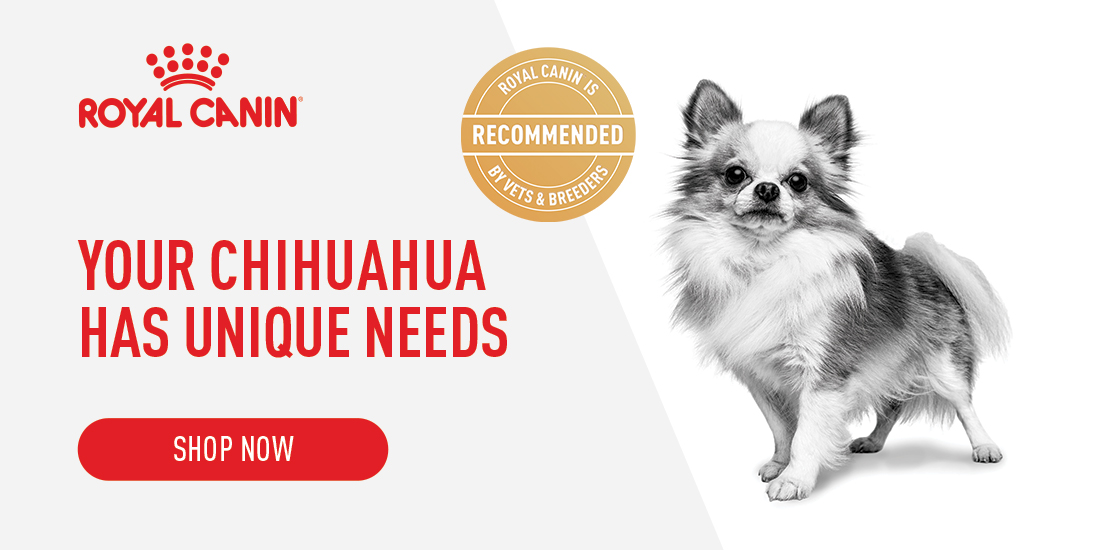Dog Breed
Chihuahua
Friendliness
Exercise Needs
Health Issues
Barking Tendencies
Grooming Needs
Shedding Level
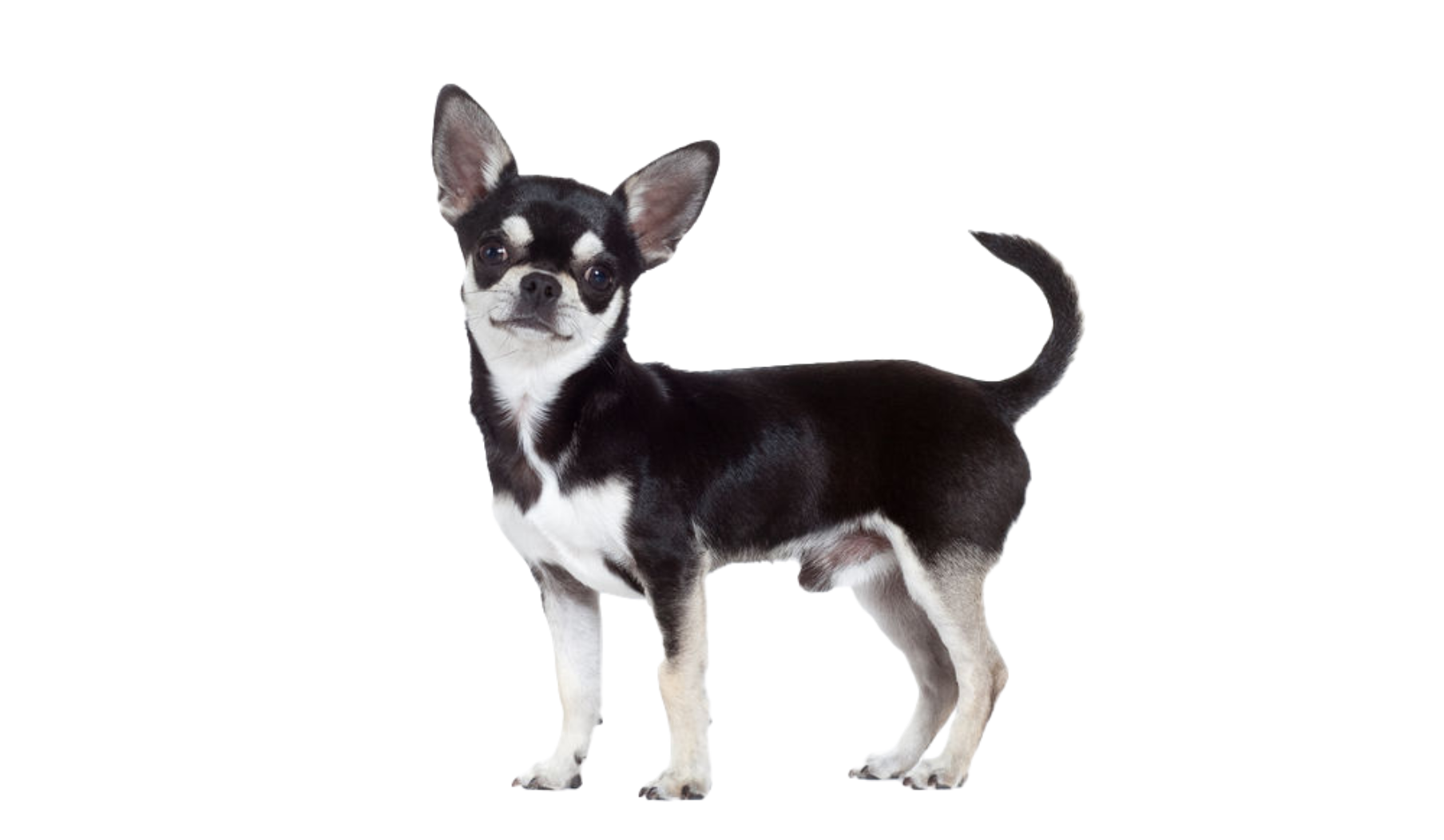

Adorable amigo
A big dog trapped in a tiny dog’s body, the Chihuahua is cuteness personified. Who doesn’t fall in love with their small stature, adorable round head, big upright ears and large, round eyes? Tiny they may be, but there’s a lot of character inside a Chihuahua.
With the personality of a much larger dog, Chihuahua are charming, mischievous and surprisingly brave for their size. They love to play, although this doesn’t usually last very long! Once playtime is over, it’s time to do what they do best - cuddle up and sleep on your lap.
Caring for your Chihuahua
Nutrition
Choosing the right food
Every dog is unique. From the small, flat-faced Pug to the obesity-prone Labrador Retriever. ROYAL CANIN® Breed Health Nutrition is tailor-made to address the unique needs of pure breed dogs. These breed specific formulas benefit from the latest ROYAL CANIN® research on the selection of the best protein sources, unique nutrients and tailor-made kibbles.
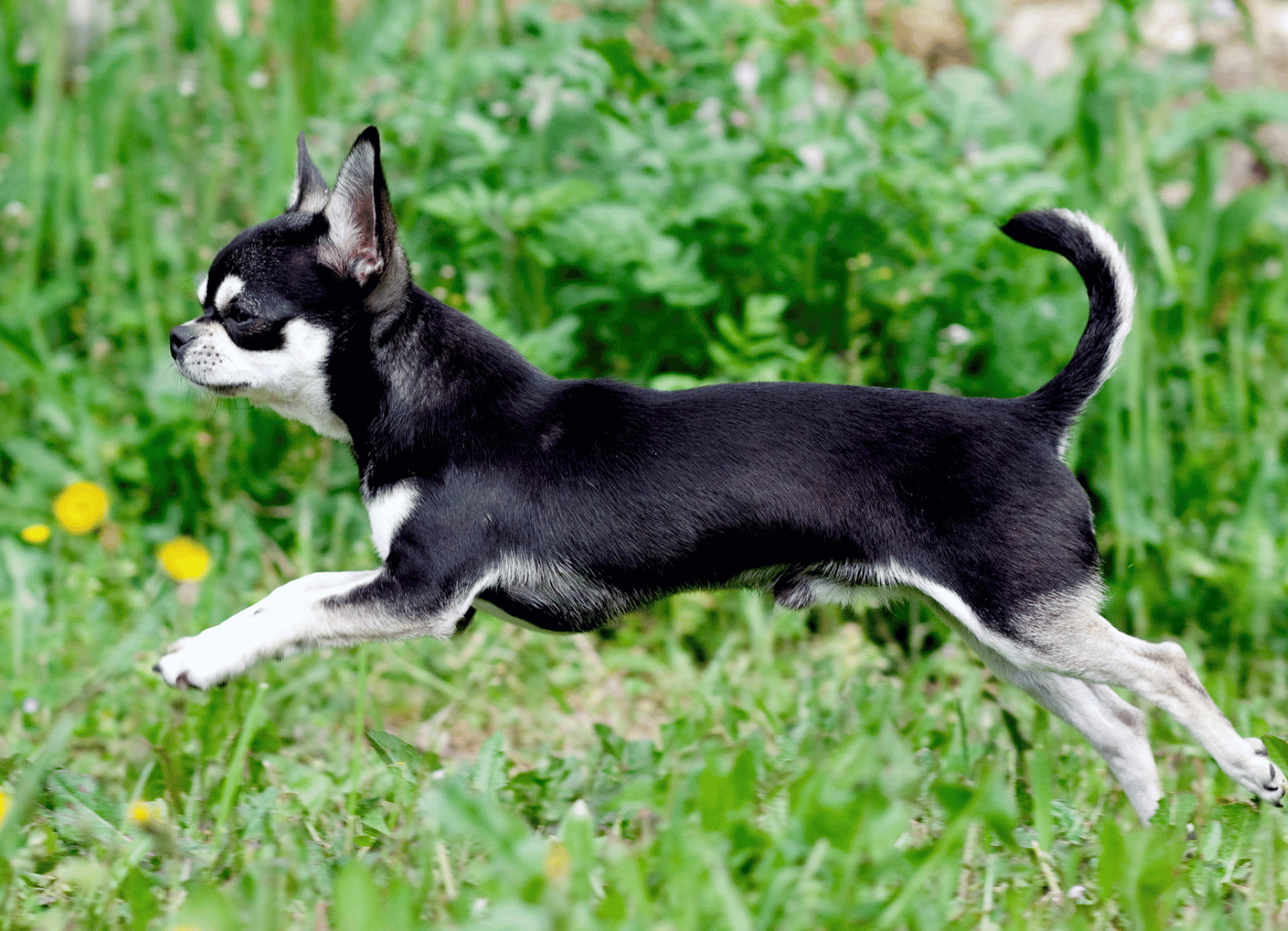
Exercising your dog
Chihuahuas don’t need much space for exercise - following you around is normally enough exercise for them!
They should still enjoy short, daily walks though, either around the block or even around the garden.
It can be really easy to not give them enough exercise by carrying them too often. Make sure you give them time and space every single day to explore on their four paws.
They’ll also enjoy interactive small dog toys for when they get a burst of (short-lived) energy at home.
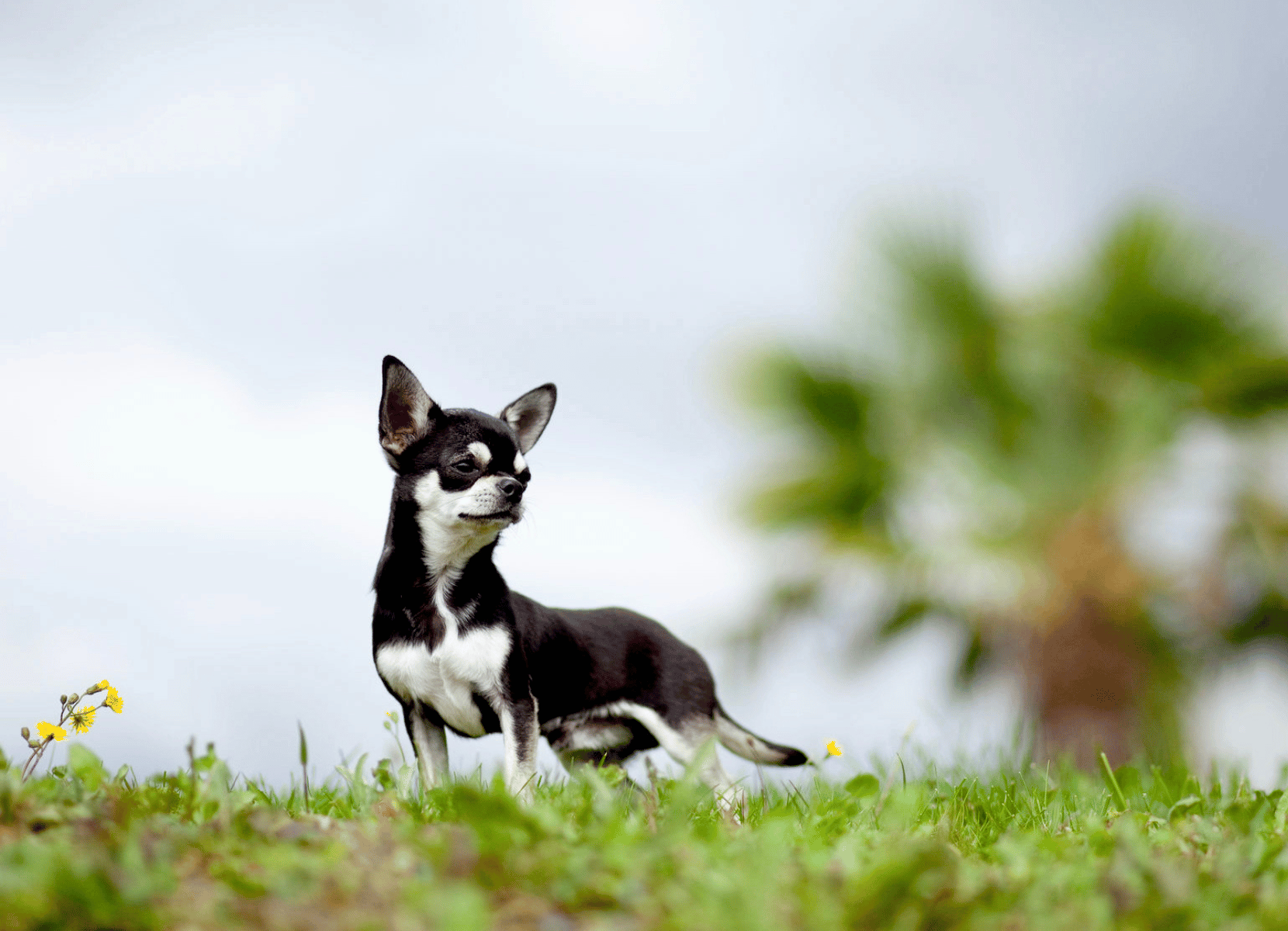
Training your Chihuahua
Chihuahuas expressive, upright ears let you know you’re dealing with an intelligent dog. Happy and playful, they love to please their humans. This combination makes them eager to learn new skills and they respond well to positive training methods.
Even when they’re a puppy, it’s important they learn you’re in charge - not them. They might be tiny but they still need to learn excellent manners. Starting training as a puppy can help them manage unwanted behaviours.
Safely socialising them as a puppy and introducing them to new people, places and things helps them become more adaptable and relaxed adults.
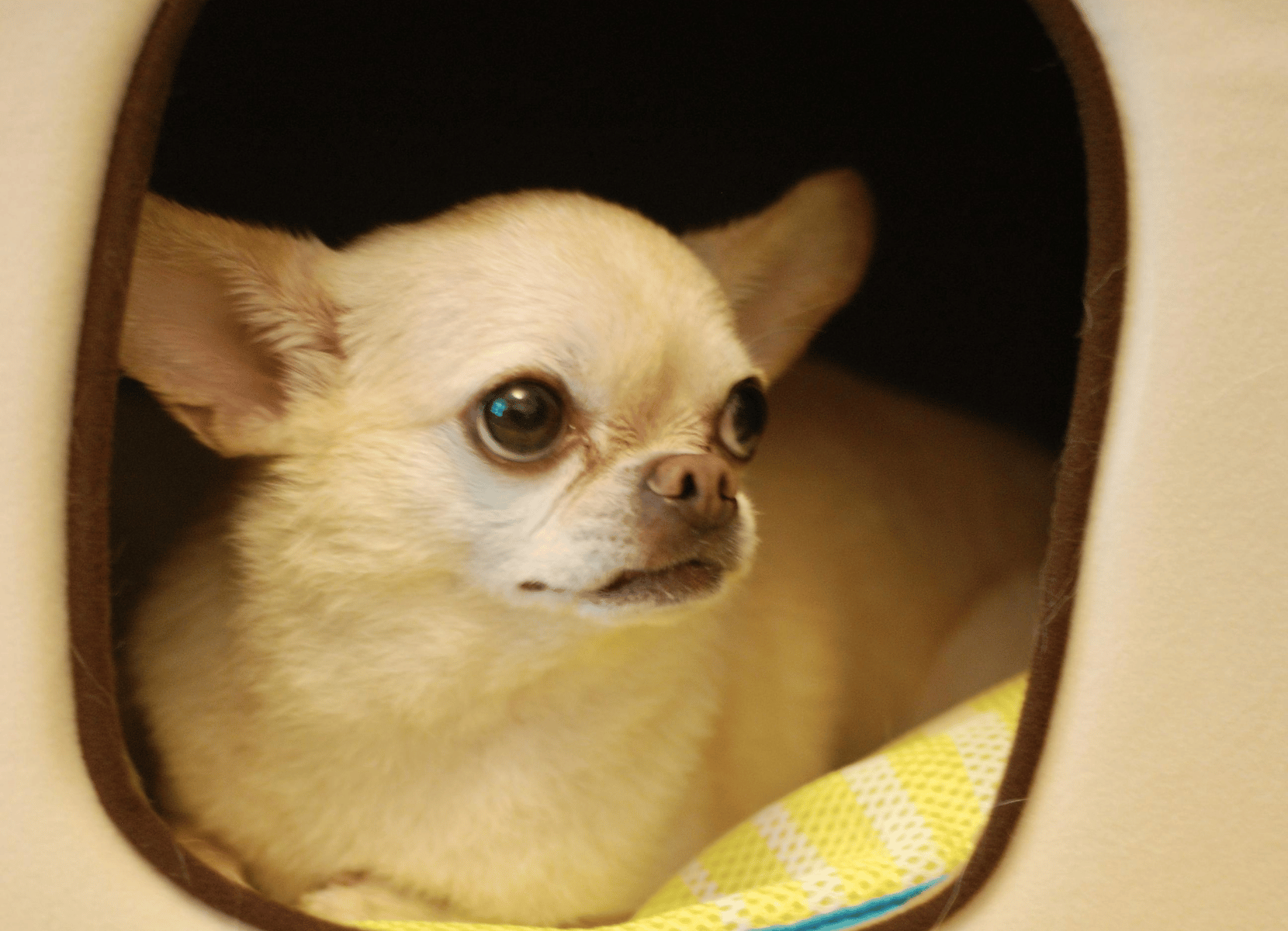
Your dog's health
By recognising health problems in Chihuahuas early you can seek advice and treatment from a veterinarian.
Reduce the risk of health problems by purchasing a puppy from a responsible breeder. Always inspect breeding facilities and breeding dogs, and never buy from a distant online seller.
Health Issues to watch out for:
Dental Problems
Hydrocephalus
Heart Issues
Low Blood Sugar
Bladder Stones
Portosystemic Shunt (PSS)
Eye Problems
Knee Problems
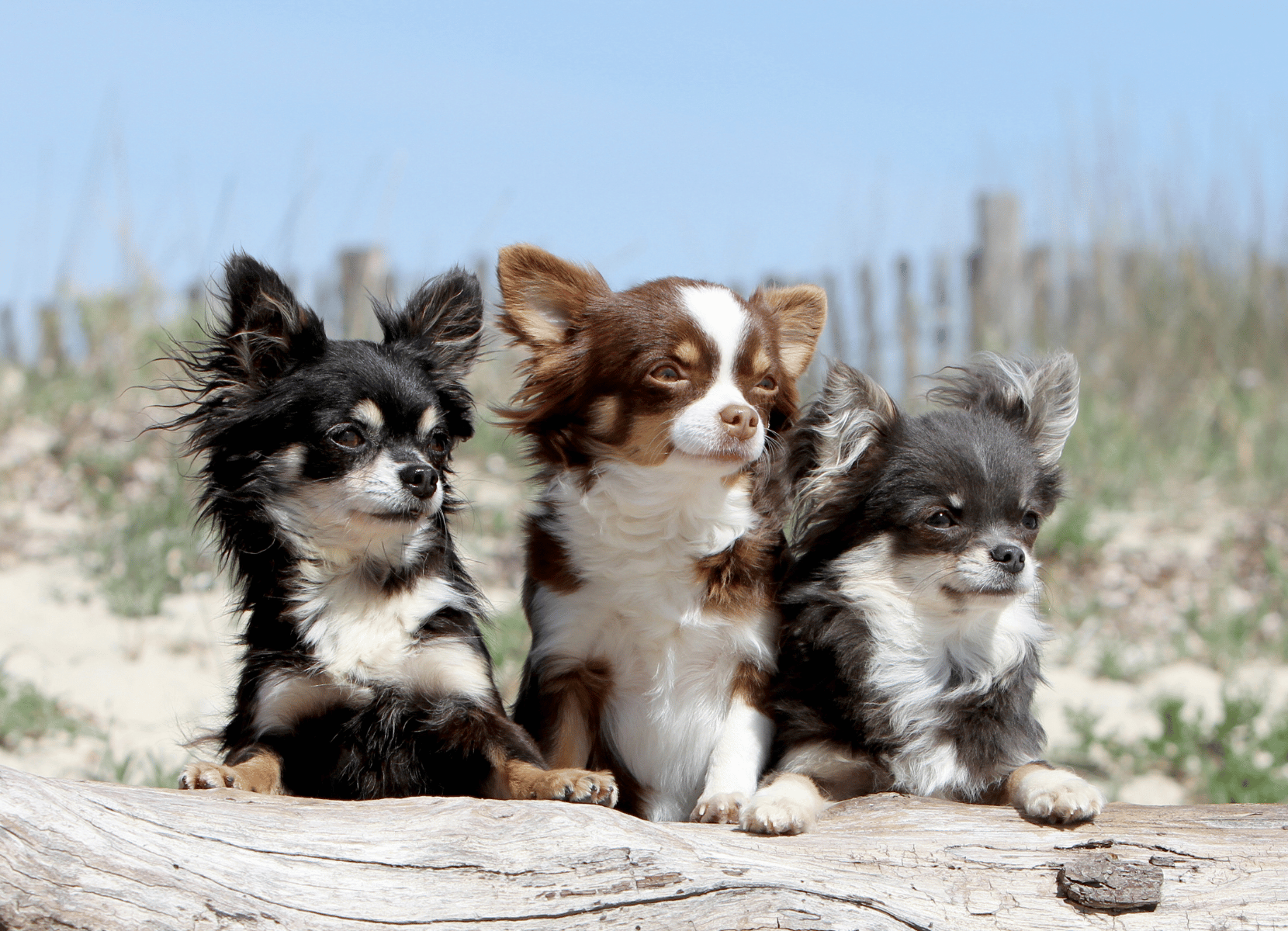
Grooming your dog
Your Chihuahua needs depends on what coat they’ve got. Short, smooth-coated Chihuahuas only need a weekly brush. Long-hair Chihuahuas should be brushed three times a week. They also need regular trimming, especially on their legs and tail.
Avoid going too short in warm weather. Their fur protects them from the sun and heat and without enough of it, they’re at risk of sunburn and heatstroke.
Both coat types can get away with a monthly bath.
Chihuahuas are known for suffering from dental disease so you’ll need to brush their teeth daily, as well as getting a yearly professional clean by your vet.
Key characteristics of Chihuahuas
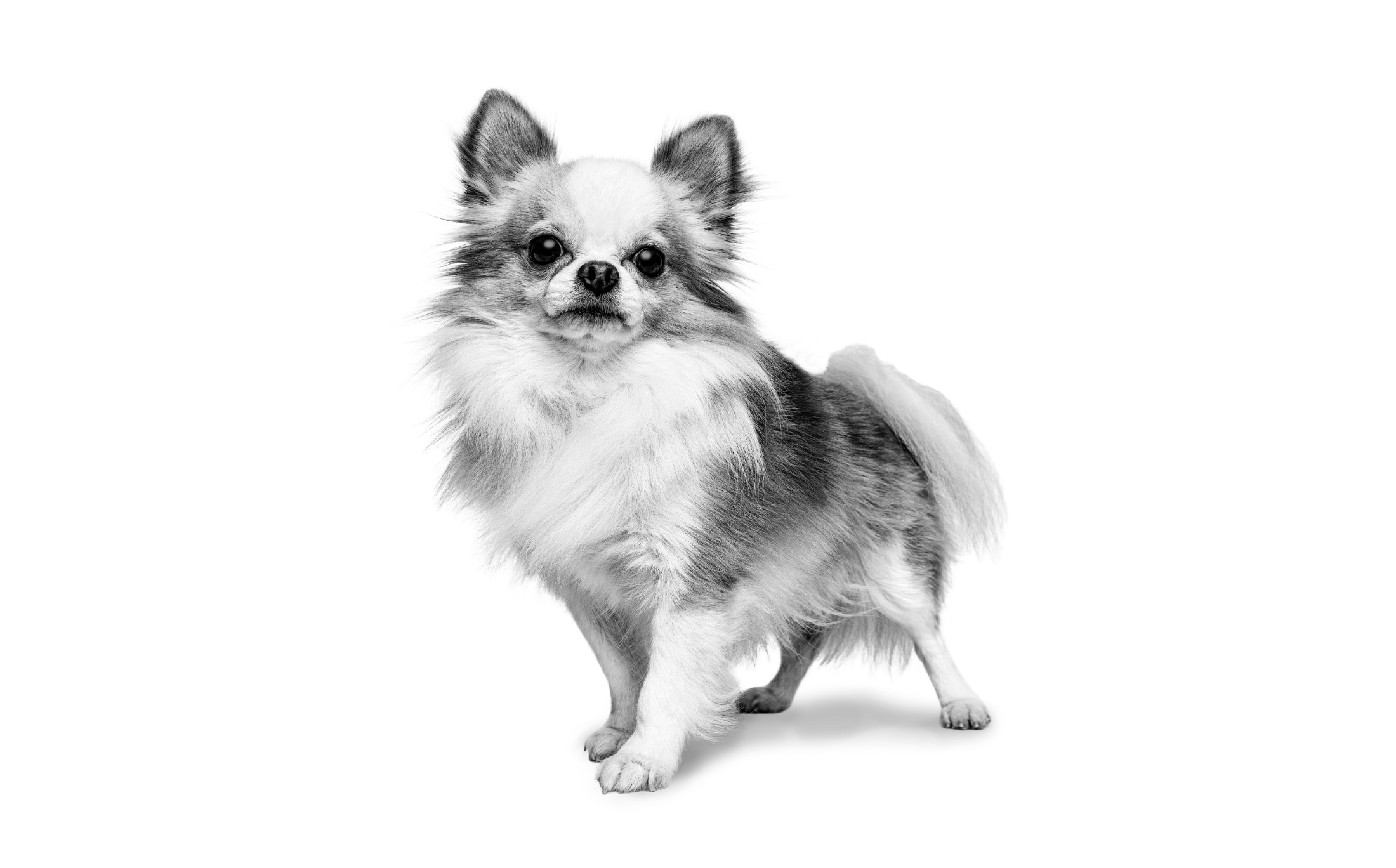
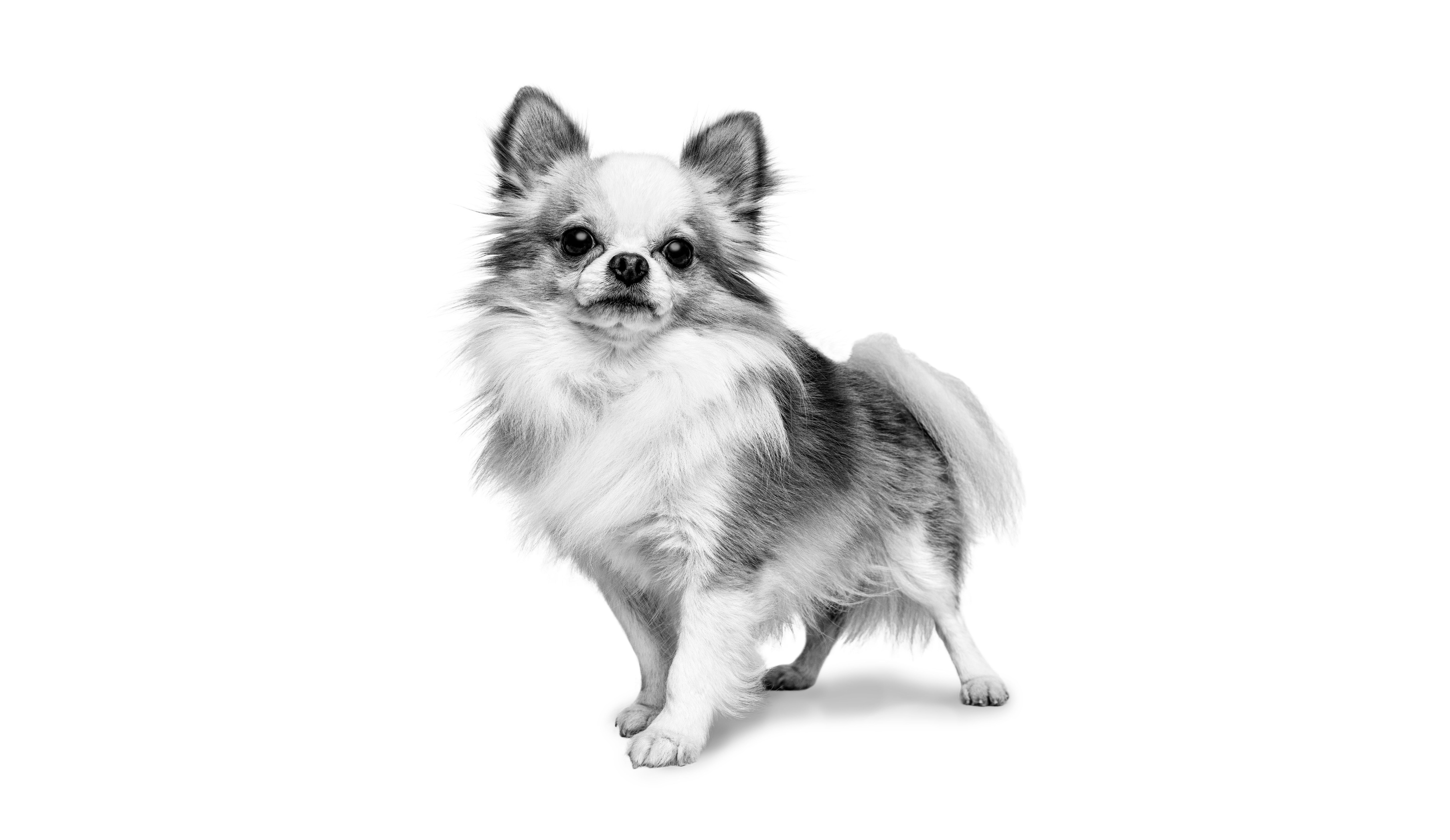
Chihuahua FAQs
Small in size but big in personality, Chihuahuas are one of the world’s most iconic toy breeds. Below are helpful answers to commonly searched questions about living with a Chihuahua, from barking habits to coat types and heat sensitivity.
Do Chihuahuas bark a lot?
Chihuahuas are known to be vocal and may bark more than other breeds, especially if they’re anxious, bored, or trying to alert their owners. Early training and mental stimulation can help reduce excessive barking and build more confident behaviour.
Are Chihuahuas better with one person or families?
Chihuahuas often form strong bonds with one person, but they can live happily with families if socialised from a young age. They prefer calm environments and may feel overwhelmed by rough play from young children.
How well do Chihuahuas handle cold weather?
Chihuahuas are sensitive to the cold due to their small size and thin coats. In winter, they’ll benefit from warm bedding, indoor playtime, and wearing dog jumpers or jackets when going outside.
Do Chihuahuas need regular dental care?
Yes, Chihuahuas are prone to dental disease, so daily brushing and annual dental vet checks are essential for their health. Dental treats and specialised dry food can also support better oral hygiene.
What’s the difference between short-haired and long-haired Chihuahuas
Short-haired Chihuahuas have smooth, low-maintenance coats, while long-haired Chihuahuas have silky fur that needs brushing a few times a week. Both types shed lightly and benefit from regular grooming to reduce mats and manage dander.
These FAQs answer common questions that can help you care for your Chihuahua with confidence. Whether you're planning to adopt or already cuddling up with your tiny companion, understanding their quirks and needs will make life even more rewarding.
